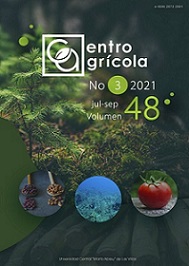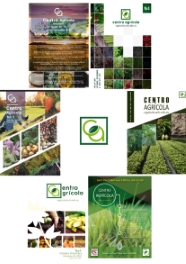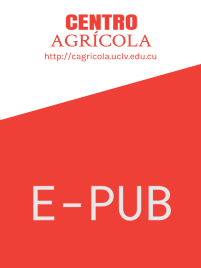CE: 1892 CF: cag054192244
RESEARCH ARTICLE
Use of native efficient microorganisms, in the management of Meloidogyne incognita in the cultivation of the tomato
Uso de microorganismos eficientes autóctonos, en el manejo de Meloidogyne incognita en el cultivo del tomate
Ceila Ferral Manresa1, Pedro Fidel Fuentes Chaviano2, Damarys Mileydis Calderón Amézaga2
1 Unidad Provincial de Control biológico. Sucursal LABIOFAM S.A. Sancti Spíritus, Cuba
2 Departamento de Agronomía. Facultad de Ciencias Agropecuarias, Universidad de Sancti Spiritus, Cuba. (Uniss). Comandante Fajardo S/N. CP 60100
*E-mail: This email address is being protected from spambots. You need JavaScript enabled to view it.
ABSTRACT
The objective of the work was to determine the effect of native efficient microorganisms on the Meloidogyne incognita nematode and on the growth, development and yield of tomato cultivation. The experiment was carried out in the Credit and Services Cooperative “Joe Westbrook”, located in Sancti Spíritus municipality during the period between December 2013 and March 2014. The treatments used were doses 150, 200 and 250 mL of efficient microorganisms per liter of water, in a brown sialitic soil without carbonate, with grade III infestation. The design was randomized blocks with a control treatment and three replicates per treatment. The effect of the treatments on the degree of M. incognita infestation in the roots was evaluated, as well as the effect on the height of the plant at the beginning of flowering, number of flowers per inflorescence, number of fruits per inflorescence, diameter and fruit weight. There were statistically significant differences in the degree of infestation caused by M. incognita among all the doses used. The best dose to reduce the degree of infestation was 250 mL; although 200 mL was the one with the best result in the parameters evaluated to the culture.







